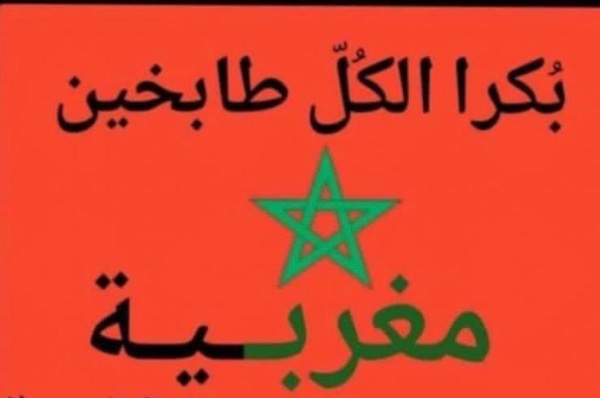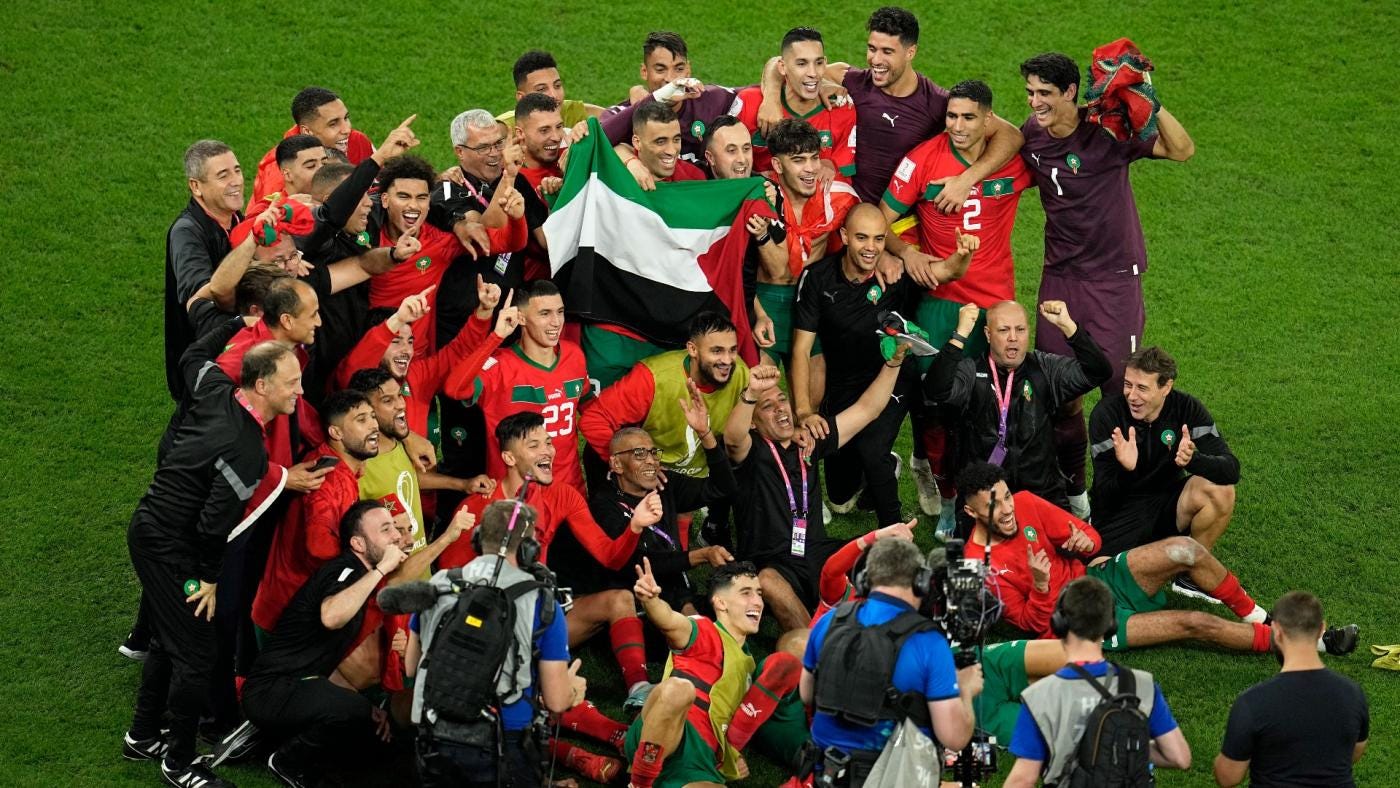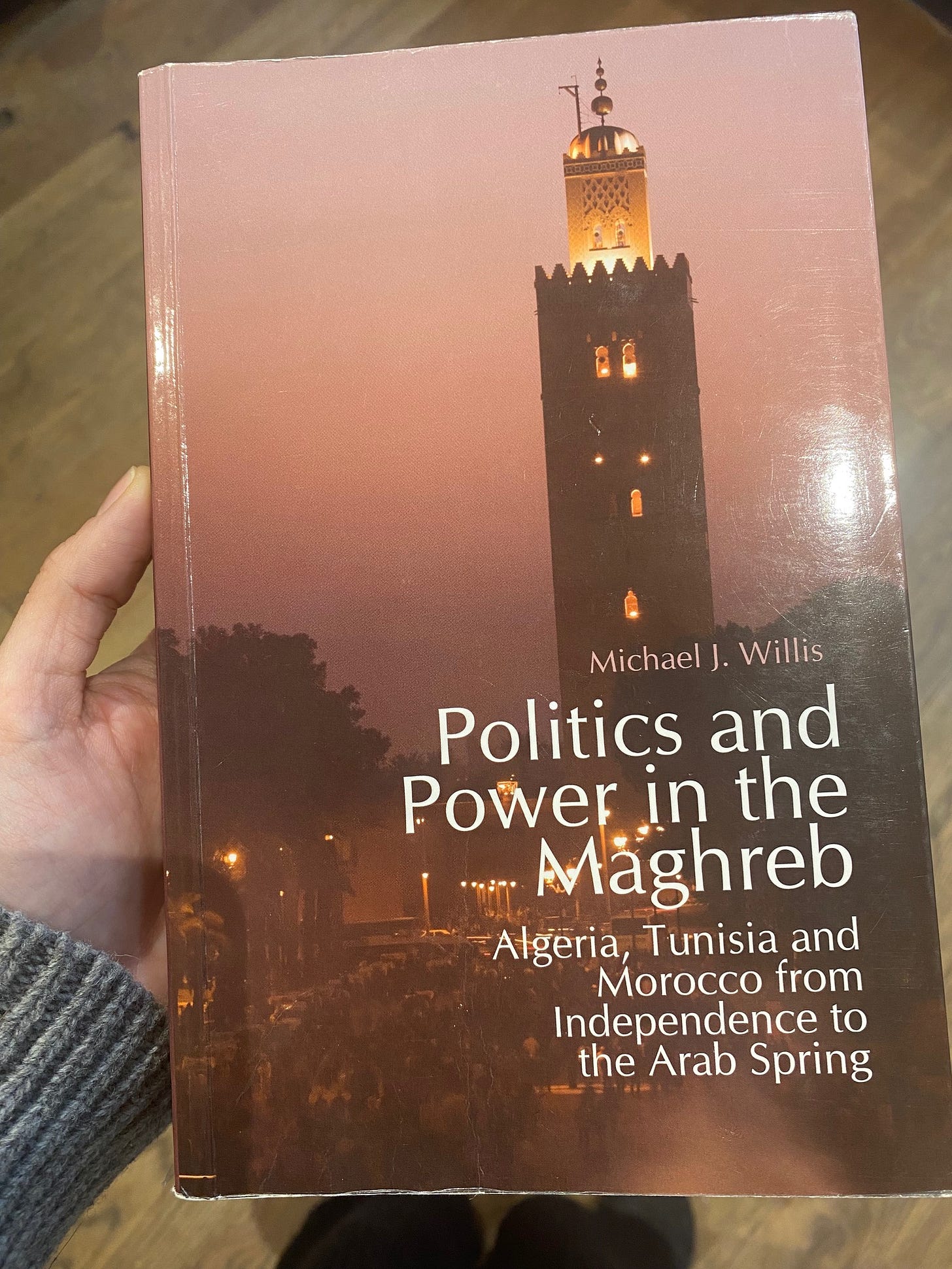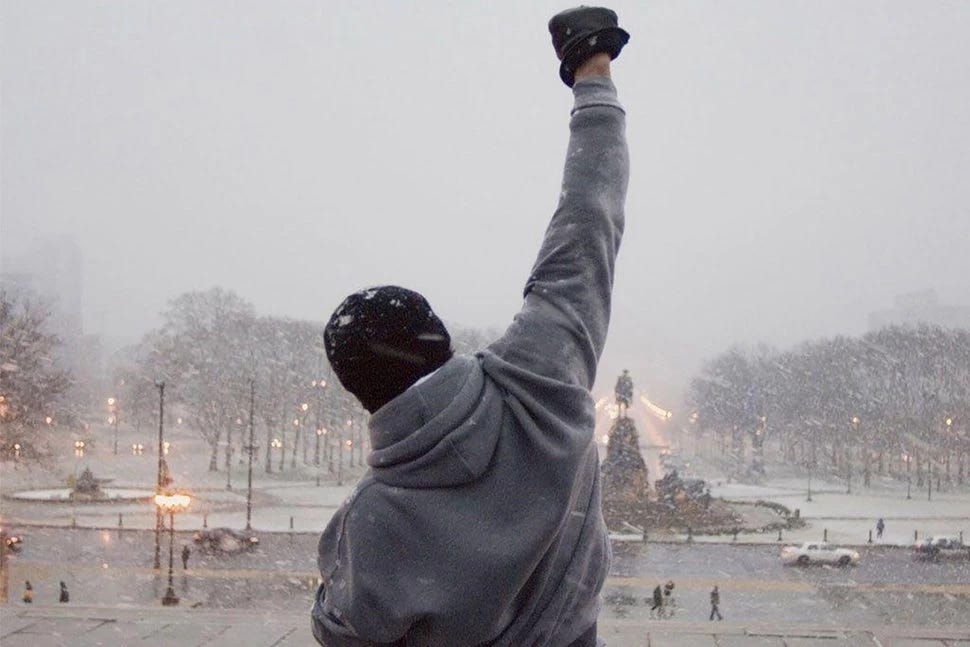‘Sir! Sir! Sir! Atlas Lions’ and other things Moroccan
The sheer joy around this victory was both personal and collective at the same time
We all love those stories in which an outcast or bullied child is given an opportunity to show their true self. Their strength, their worth. We love those stories because they are universally relatable. Those stories are like a caring hand tearing down a dusty old curtain from a window overlooking a small meadow where we once kept our now-unfulfilled dreams. These were my initial thoughts when I attempted to gauge the inimitable joy surrounding the Moroccan national team’s – aka Atlas Lions – victory over Portugal and advance to the semi-finals of the World Cup 2022. The sheer joy around this victory was both personal and collective at the same time. A collective win for Arabs, for Muslims, for Africans – and anyone else who has ever been bullied.
Morocco, in a plot twist that would appear amateurish and cliché in a novel, will face France in the semi-finals. Life is an amateur, this turn of events reminds us. It is comforting in some ways, no?
People of the city of El-Ayoun, in the south of the Kingdom of Morocco, took to the streets to celebrate. They were joined by a number of prominent figures including state officials, diplomats, and artists. A series of Moroccan, Egyptian, Saudi, Emirati, and Lebanese celebrities took pride in the Moroccan team’s win, along with Gigi Hadid and her father on Instagram. Doha rejoiced, Beirut rejoiced, Cairo rejoiced, Tunis rejoiced, Baghdad rejoiced. But more than anyone the people of the besieged Gaza Strip rejoiced.

Atlas Lions have been unfurling the Palestinian flag after their win signalling that the people have not forgotten the Palestinian cause no matter how high politics has been operating. Morocco, in 2020, signed a normalisation agreement with Israel under Trump-brokered deals known as the Abraham Accords, along with the UAE, Bahrain, and Sudan. The U.S., in exchange, recognized Moroccan sovereignty over Western Sahara and pledged a $1 billion arms deal-including four Reaper drones to Morocco.1
‘What has become clear to the Israeli establishment and public alike in this World Cup, however, is that while the region’s kings and sheikhs may have decided to break bread with Israel – to boost their economies, buy military hardware and better combat their common foe, Iran – for much of the Arab world, the Palestinian struggle still matters.’2
In return, ‘in Ramallah’s Arafat Square, thousands of people danced or handed out sweets when the final whistle blew, while car horns blared and fireworks and celebratory gunfire rattled through the night. The scene was repeated in towns and villages across the occupied West Bank and Gaza Strip.’ Isreal which will, in a matter of days, have its most conservative and anti-Arab government, responded to the celebrations with its usual brutality.
Morocco’s national team goalkeeper Yassin Bouno following his team’s win against Portugal refused to speak in English, French, or Spanish, three languages in which he is fluent in, instead opting for Arabic: ‘It is not my problem that you did not bring your translators.’ He became a hero. Songs are made on TikTok and Instagram in his support.


Moroccan identity is not confined to spaces imposed by outsiders. Despite French efforts to divide Morocco into inauthentic identities in order to ease its colonial rule between 1912 and 1956, Morocco is not only a nation of Arabs or Muslims but also an African nation. And Amazigh for that matter. “We’re African, too,” said Walid Regragui Moroccan coach, “we want to fly the flag for African football.”

Regardless of the outcome of the game against the French, Atlas Lions’ performance thus far should inspire us to learn more about Morocco. Here are a few suggestions:
Politics and Power in the Maghreb: Algeria, Tunisia, and Morocco from Independence to the Arab Spring by Michael J. Willis is a perfect start. It draws parallels between said Maghreb countries and displays the evolution of state structures and power dynamics in the post-independence period. Highly accessible.
Willis’ lucid account and the grand narrative of the Maghreb can be followed by Jonathan Wrytzen’s Making Morocco: Colonial Interventions and the Politics of Identity. This book is a product of ‘post-colonial sociology’ which seeks to overcome Eurocentric perspectives and demonstrates the transformation of Moroccan communities.
Three novels are also worth mentioning. Three classics of modern Moroccan literature. Leila Abouzeid’s Return to Childhood: The Memoir of a Modern Moroccan Woman (University of Texas Press, 1998) is set in 1950s Morocco during the country’s fight for independence from French colonial rule, as well as subsequent struggles of the state-building process. The Game of Forgetting (Quartet Books, 1997) by Mohamed Berrada tells the stories of various members of a Moroccan family during the period between the French Protectorate and Independence, focusing on how human memory is fallible and impacts our experience. Finally, there is Abdelkarim Ghallab’s We Buried the Past (Roger Allen, 2018). Ghallab himself was a member of the nationalist Istiqlal movement which later became the first political party that threatened -and questioned- the King’s legitimacy in the post-independence period. Ghallab, in his novel, following the life of an affluent family living in Fez depicts the struggles of independence, nation-building, and the profound effects of identity construction on the people.
The word ‘Sir!’ in the title of this letter means ‘Go!’ in the Moroccan dialect of Arabic, darija. The fans of the Atlas Lions clap their hands together and thunderously yell ‘Sir!’ before falling silent. If you want to thank them for giving us the best story amid the dirt of politics and reminding us of life’s surprises for all the Rocky Balboa ‘s, this is how you should do it.
Elaine Pasquini, ‘Morocco-Israel Normalization: Implications for Western Sahara and Palestine’, The Washington Report on Middle East Affairs, 40:2, Mar/Apr 2021.
Bethan McKernan and Quique Kierszenbaum, ‘God preserve this score! Palestinians revel in Morocco’s World Cup backing’, The Guardian, 10 December 2022.







